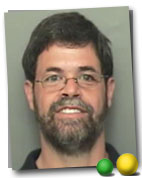Google's Adam Bosworth to NYC technologists: Speed rules


Bosworth has held senior management positions at Microsoft, including serving as General Manager of the WebData group, a team charged with defining and driving XML strategy. While at Microsoft, he was responsible for assembling and leading the team that developed Internet Explorer 4.0's HTML engine. These two efforts are considered to have delivered the technology known today as Ajax. Before that, he was responsible for designing and delivering the Microsoft Access PC database product.
In 2003, Bosworth was awarded the XML Cup for his contributions in making XML a successful Internet standard. Bosworth’s engineering accomplishments were realized without benefit of an engineering degree. He holds a bachelor's degree in History from Harvard University.
Bosworth’s background in humanities is undoubtedly reflected in his humanist perspective on software engineering.
I chatted with Bosworth before his formal talk and asked if the title of his presentation suggested that an esoteric debate was in store. He assured me that he had nothing of the kind in mind.
Bosworth began his discussion before an attentive audience of about 250 NYC technologists with a disarming quip, beware “POFs (Pontificating Old Farts).” He then cited “Top Gun’s” Tom Cruise: “I feel the need, the need for speed.”
Bosworth put forth that most projects fail due to the human psychology component. Humans need to feel in control and in the computing environment people want to be “in charge,” he said. Bosworth cautioned that lack of speed results in computer interactions going from “fun” to being “unbearable” while fast, predictable machine responses support reassuring user experiences.
Bosworth offered the “vagaries of windows” as an example of unbearable computing he had experienced, underscoring “I am a Mac user now.” He also noted a frustration with long download time for Outlook emails.
Bosworth pointed to an increasingly large number of broadband users and massively faster chips as enabling Ajax to “get a second life.” He indicated, however, that while carefully crafted apps such as Yahoo’s email were quick enough, they could still be hard to use.
Bosworth credits the “Microsoft Help” function in part for spurring navigation-free, search-oriented solutions to “fuzzy problems.”
Bosworth concluded with remarks on “Google today”: Search is not treated as a natural language problem because there would be no room for error. In search, choices are expected and the magic is just ranking. We present a set of search results, making an educated guess. Searchers don’t know if we are right but imprecision is better than nothing. It works when the problem is huge, such as filtering all links on the Web. We save customers time, the users are always going to win.
Adam Bosworth, Donna Bogatin